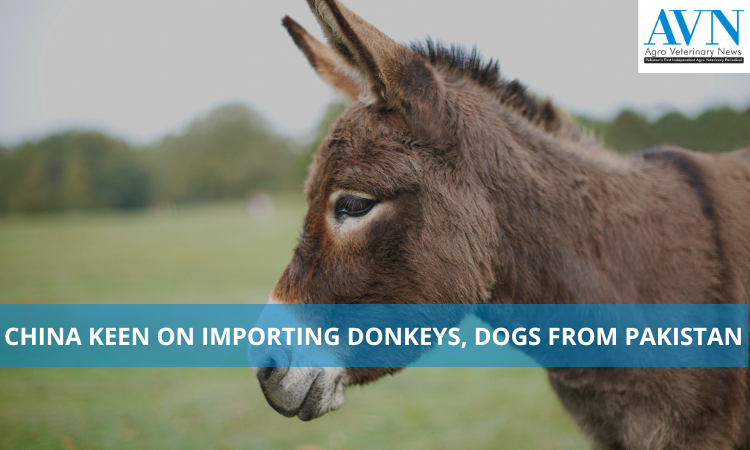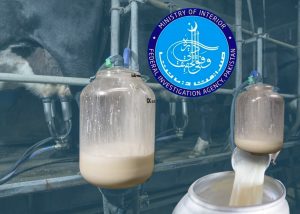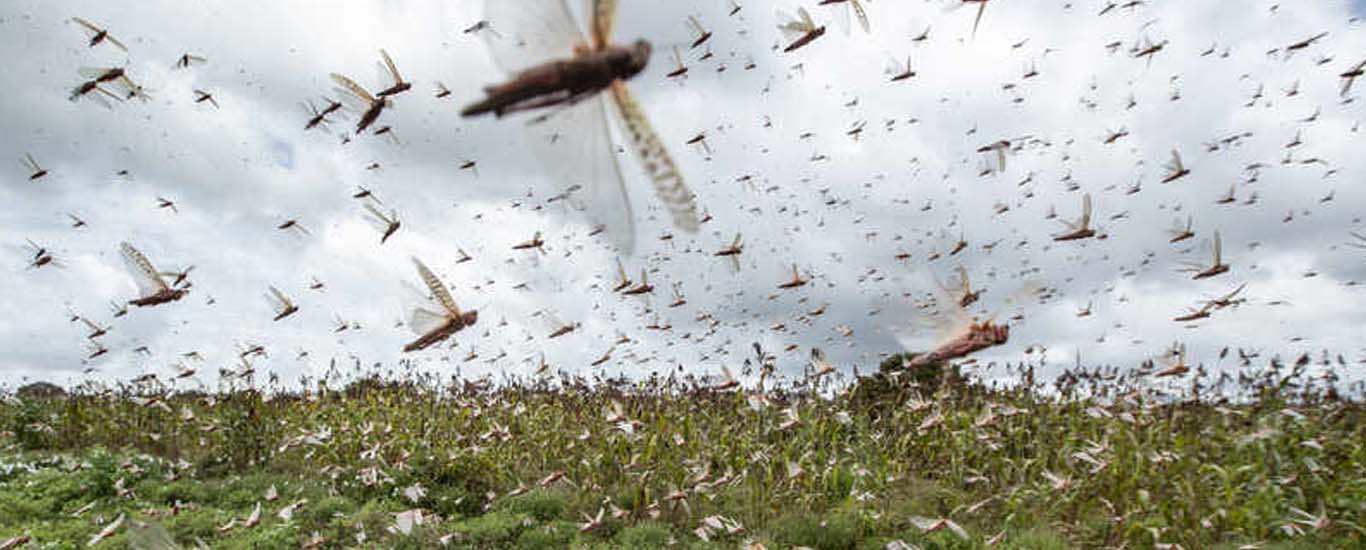
Karachi: China has expressed interest in importing donkeys and dogs from Pakistan, according to officials as the famished country attempts to recover from a massive economic crisis.
Pakistan, which has the world’s third largest donkey population with 5.7 million animals, has previously outsourced the animals to China. During a briefing on imports and exports between officials from the Ministry of Commerce and the Senate Standing Committee on Monday, one of its members, Dinesh Kumar, said that China had expressed interest in importing donkeys and dogs from Pakistan. Senator Abdul Qadir also informed the committee that the Chinese ambassador had discussed the possibility of Pakistan exporting meat multiple times. One committee member also suggested that since animals are cheaper in Afghanistan, Pakistan can maybe import from there and then export the beef to China.
China has a strong interest in donkeys because the animal’s leather is used to create traditional Chinese medicines, such as “Ejiao,” or donkey glue, which reportedly has medicinal properties and is conventionally used to nourish the blood and boost the immune system. It is available in a variety of edible forms to aid circulation and soothe aches and pains. Approximately 2 million of the animals come from China’s own population. Three million or more of the remaining are sourced from countries outside China. Last year, the Punjab government intended to export donkeys to earn foreign exchange. They further established a 3,000-acre donkey farm in the Okara district of Punjab province. The government-owned farm which has donkeys of “great breeds,” which include American donkeys, promotes high-quality donkeys to China and other countries. Previously, China imported donkeys from Niger and Burkina Faso. However, the two countries later prohibited animal exports.
Dogs’ societal roles are growing, whether as companions or as support or therapy dogs for volunteer groups or human healthcare providers. Many changes are visible in new research findings and evolving regulatory and legal updates regarding dogs’ roles in society. Dogs have been domesticated since the Iron Age. Traditionally, they were used for hunting. They were utilized to guard and herd farm animals in some agricultural societies (sheep and cattle dogs). Dogs were expected to hunt, steal food remains, and gather for themselves, and there was no control over breeding. Dogs were used as draught animals in the middle Ages, lifting small carts for farms, salesmen, or visitors (milk, fish, rags & bones, meat, bread, and other products).
The integration of pets into our households has accelerated in today’s modern societies, which have chiefly large urban population levels and increasing wealth. The way humans and dogs interact has also changed. Dogs now are kept for personal security, comfort and love, protecting property, and emotional support.
The psychological and social effects of dogs on individuals are derived from theoretical perspectives with associated physical and social processes. The practical applications of interpersonal interaction for therapy or enhanced life quality are expanding. Animals can provide psychological and social benefits in a range of ways, such as: legitimizing and enhancing the quality of life for those with mental illnesses or disabilities by easing loneliness or depression, increasing social relationships, influencing people, and improving physiological health with comforting effects.
China’s demand for dogs differs by region, similar to the extent of dog consumption in China. Yulin, Guangxi, has managed to hold an annual festival of eating dog meat since 2009. It was last held on 21st June 2022. It was reported that each yearly occurrence of the festival ingested approximately 10,000 dogs. According to the festival’s organizing committee, the dogs are slaughtered humanely, and snacking on dogs is no different from consuming pork or beef. Animal rights activists and advocacy groups, on the other side, claim that animals are treated poorly. According to several news organizations, dogs are deliberately tortured or boiled alive to improve the taste of their meat. According to a report by the Animals Asia Foundation, the majority of the dogs available for consumption are strays or stolen pets. Approximately 70% of rural villages in China surveyed had unexplained dog losses.
Not all of us question the value of saving animals or the need to relieve their suffering. As selfless people, we comprehend that even small acts of compassion can make a big difference in somebody’s life. We do it because it is the right thing to do, out of joy, awareness, compassion, and understanding, or simply because it is the right thing to do. Whatever our lifestyle choices are, everything we do each day has an influence on animals, even if we don’t own these. And, although it is wonderful to continue living a cruelty-free style of life, I acknowledge that it is not for everyone. Helping animals tends to increase our humanity and contentment. It also aids in the recovery from trauma and depression.
Trap-Neuter-Vaccinate-Return (TNVR) is the internationally proven process of painlessly trapping, spaying/neutering, vaccinating, and returning undomesticated or wandering community dogs to their colonial possessions. A nonprofit colony health professional who serves food, and safe housing and monitors the dogs’ health is required for successful TNVR. A TNVR has been proven to be the most cost-effective, convenient, and humane method of stabilizing dog populations.
There are approximately at least three million stray dogs in Pakistan, with 50,000 excised each year. Annually, over 80,500 dog bites are reported in Pakistan, and up to 5,000 people die from rabies. According to animal rights NGO Four Paws International, a single female dog can give birth to more than a dozen puppies annually, or more than 80 in her lifetime. Without homes to provide basic shelter, food, and medical attention, puppies and kittens are commonly left to fend for themselves throughout Pakistan and other countries that do not provide adequate care for stray animals. Most of these babies do not survive their first weeks of life because they are born in less-than-ideal conditions; during the winter season, many are frozen to death, end up starving when their mothers are brutally murdered in traffic, are threatened and eaten by other animals, and are sometimes deliberately killed by living beings. The CDRS Benji Project is attempting to put one workable alternative to the test with Pakistan’s first dedicated TNVR program, which aims to decrease the number of stray dogs and the suffering they have been forced to endure for decades, while also making the dogs safe and secure for the outdoor spaces by immunizing them and training them to be less violent. Apparently, TNVR is the only humane way to help reduce the number of dogs roaming the streets.
Equids (donkeys, horses, and mules) play an important role in economic growth in low and middle-income countries. Donkey carts are used to carry building materials, commercial produce, and garbage in Karachi. However, the utilization of donkeys in waste management has received little attention to date.
Around 200 donkey owners were interviewed who utilize their animals to transport trash, and they also conducted assessments of 50 families that used cart donkeys for waste collection. Representatives of the town committee and specialists in animal healthcare were interrogated.
For 89% of the donkey owners whose masters were contacted, trash collection was their primary source of revenue. Men, women, and children from all ages of the home engage in trash collection. The plurality of donkey cart operators who were interviewed acknowledged that if donkey carts were not offered, there would be a significant accumulation of trash.
According to studies, the condition of donkeys engaged in trash pickup is painful and 78% of them have had their muzzles chopped off. Working animals are generally exposed to abuse and torture for social, ethnic, anthropological, agricultural, or reportedly medical reasons. A large percentage of donkeys (66.7%) had superficial knee sores, which could have been spurred on by overloading and/or rough, muddy roads.
Donkeys can be tremendously utilized to boost the economy very easily. They are widely utilized in farming and transportation in rural areas; they pull carts, transport items to markets, and also get water from wells. They are primarily employed in construction, transportation of people and goods, and trash collection in urban areas. They boost the economic possibilities of an area by enabling their owners to work. In Ethiopia, there is a proverb that states, “If someone doesn’t own a donkey, then they are a donkey.”
Working animals provide an additional source of revenue to the country’s economy that enables individuals to save money, invest in expansion strategies, and fund educational opportunities. By reducing the time and labor required for fieldwork or farm transportation, working donkeys increase productivity. According to research, women frequently use working animals to perform chores that they would otherwise be required to complete themselves, such as transporting products and getting water. They also raise women’s status in the community by allowing them to take part in the economy. Donkeys give a person the extra money they need to send their kids to school. They also aid parents in giving children the time and attention they seek at home by executing duties that would otherwise be performed by adults.
Therefore, the goal is to find alternatives that can strengthen the nation’s economy rather than completely stopping the export of animals. It is quite simple to just breed animals for profit, but it takes courage, guts, and labor to create effective systems for future generations that might offer a better outlook on the nation in the years to come.
By: Dr.Ayesha Farrukh









